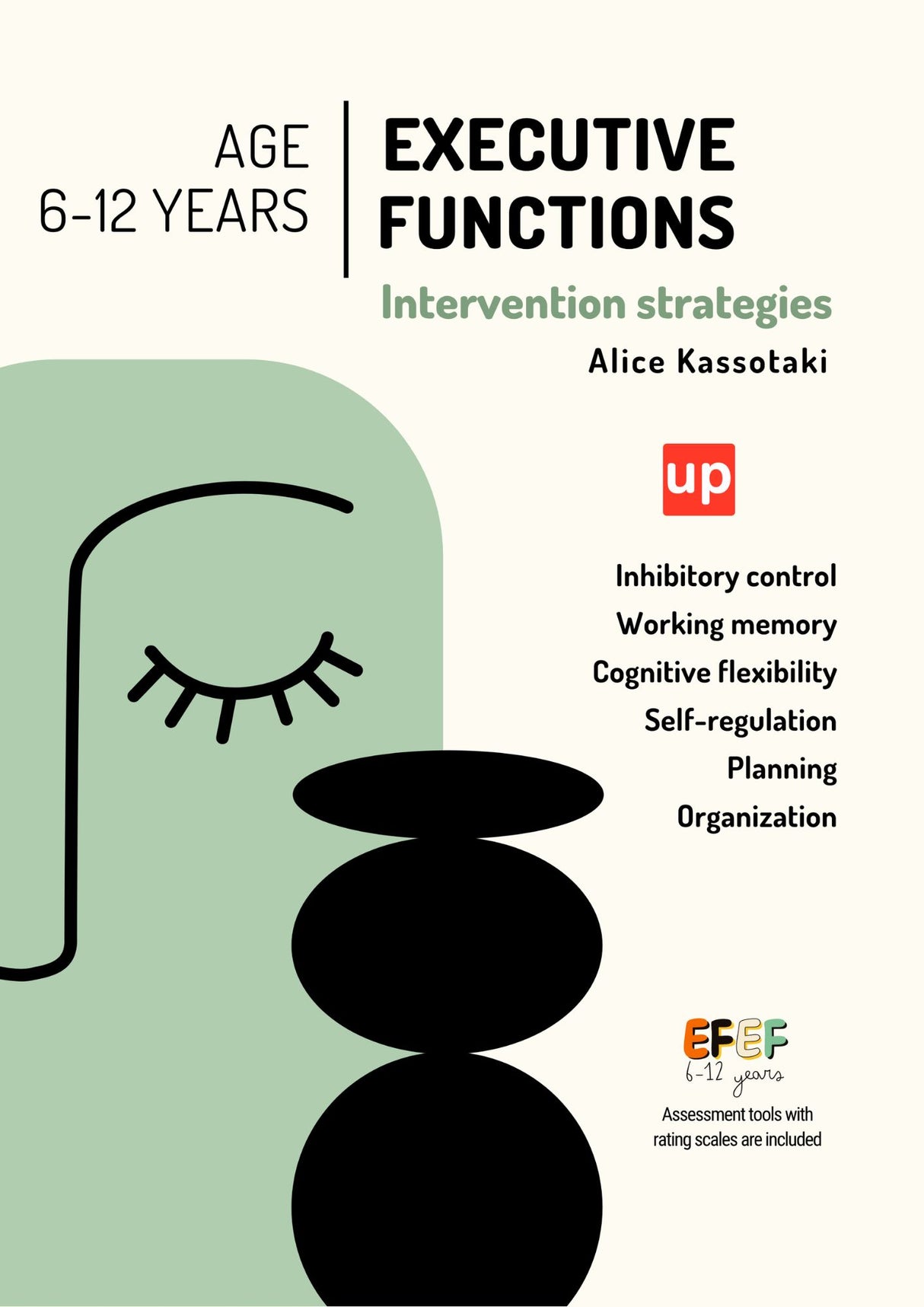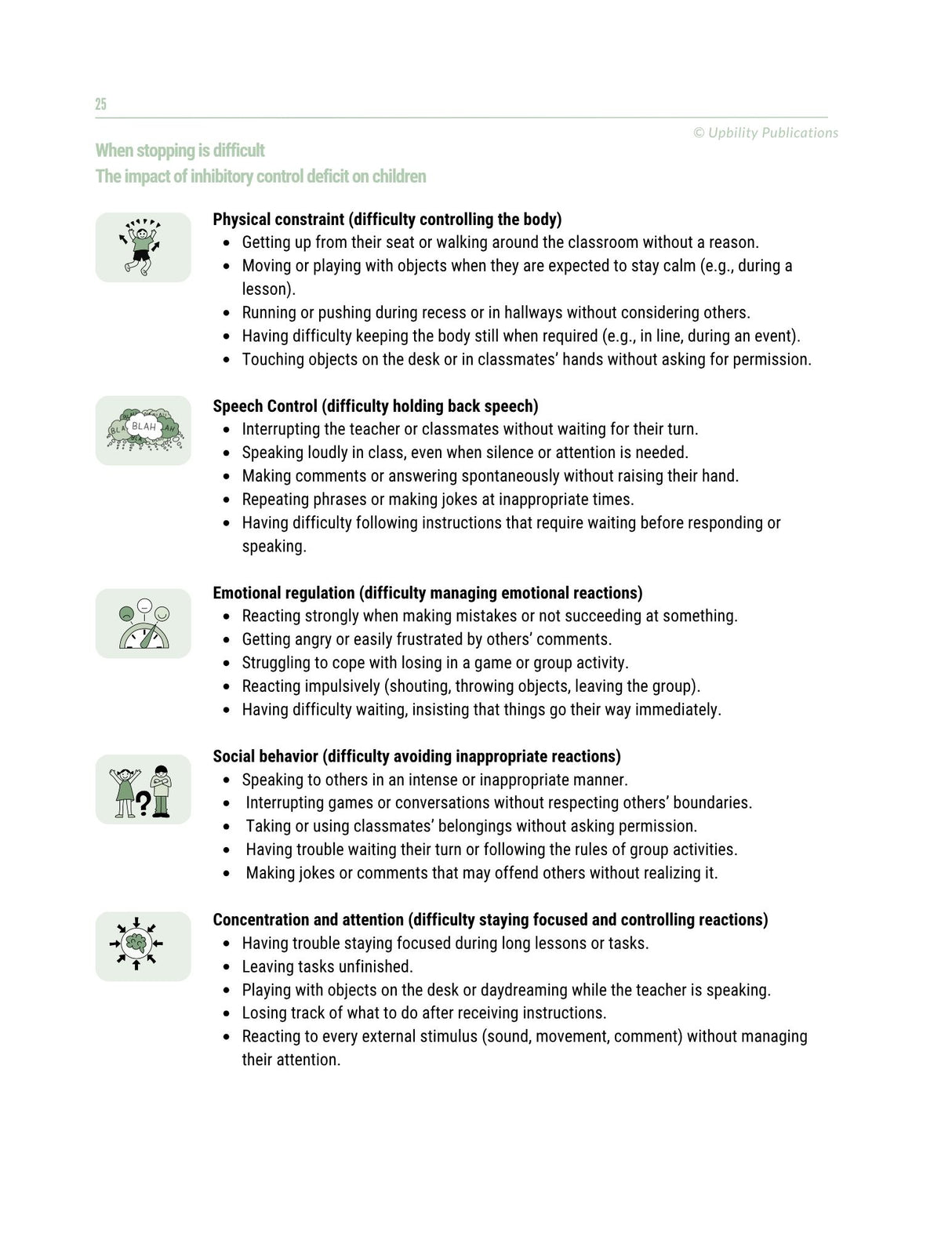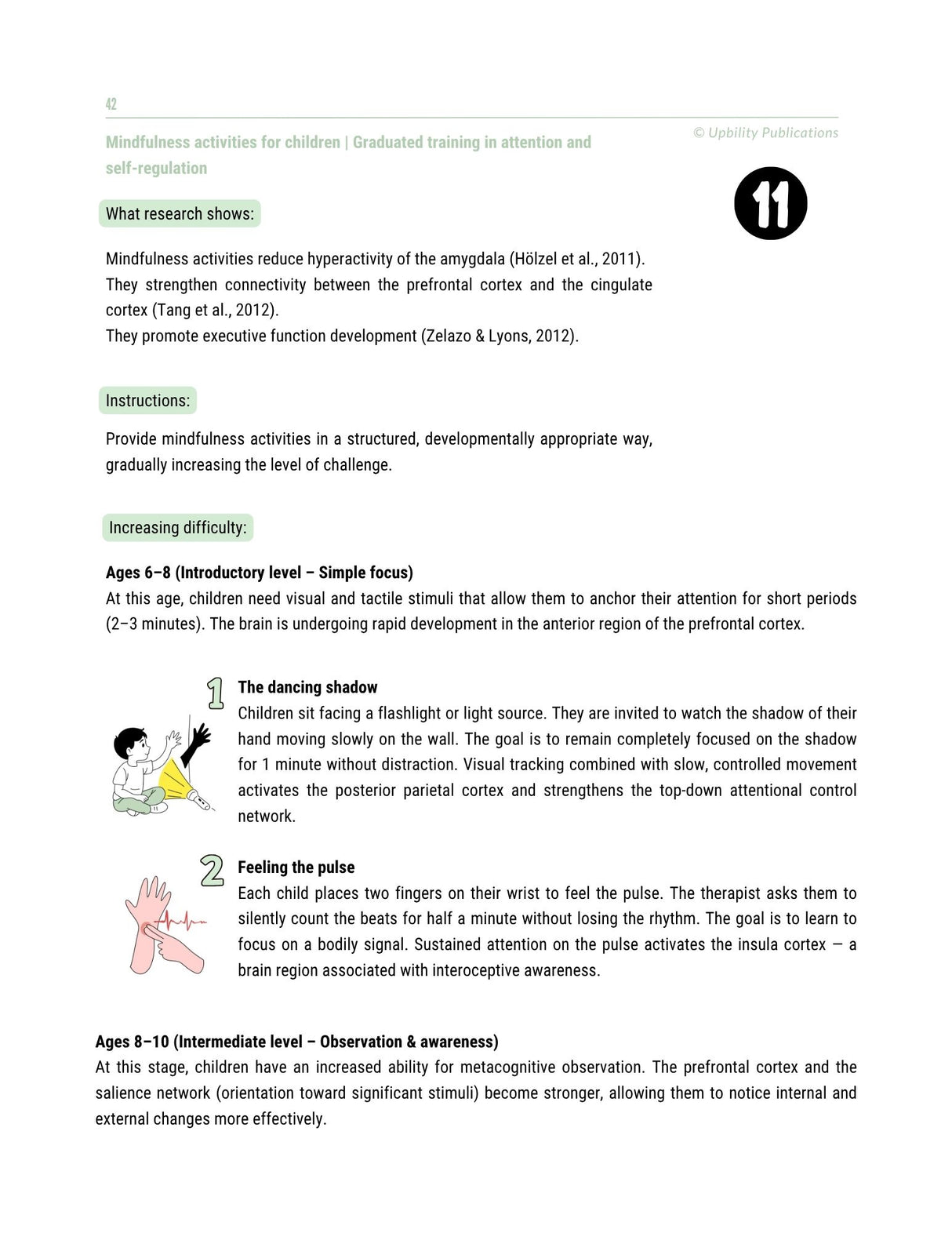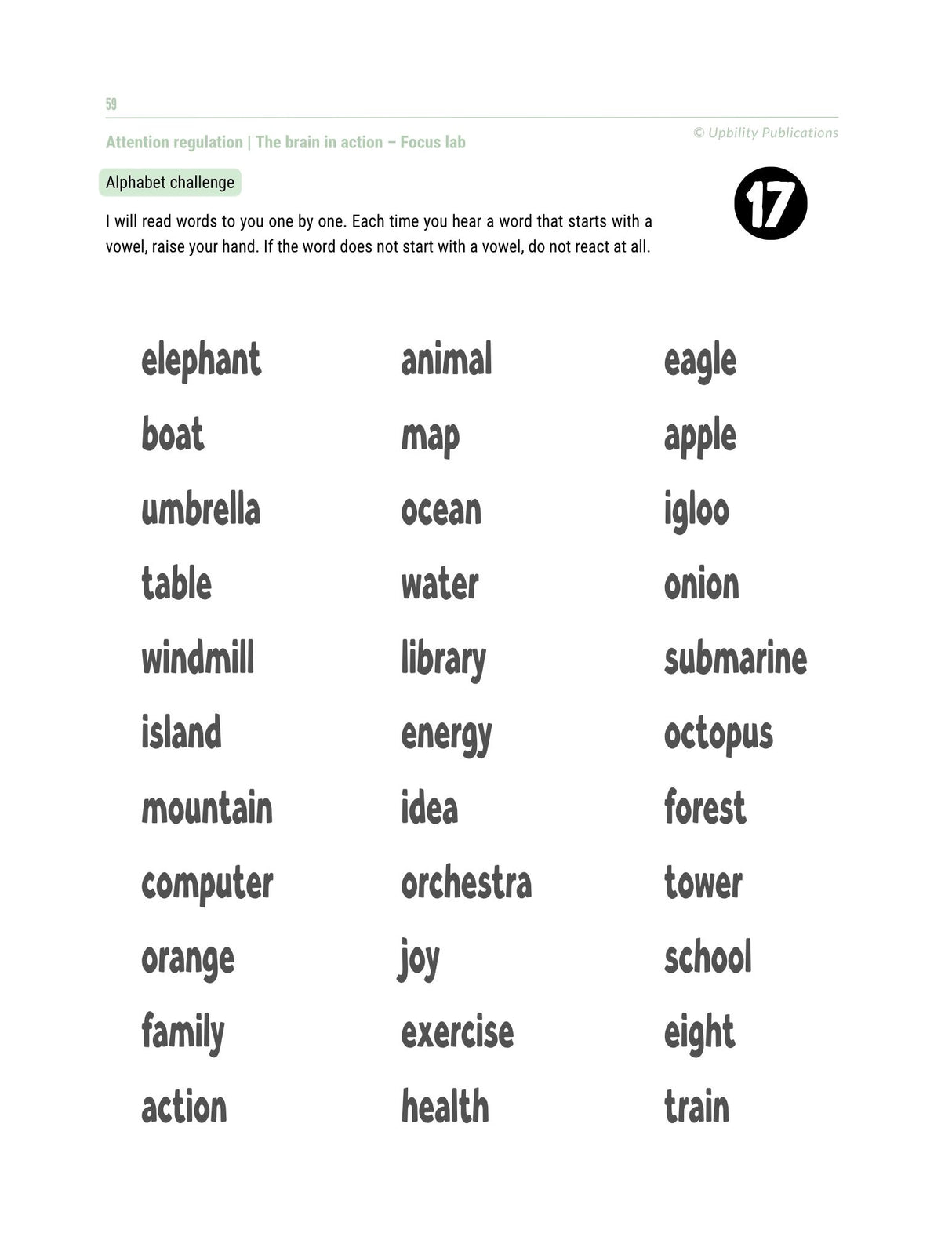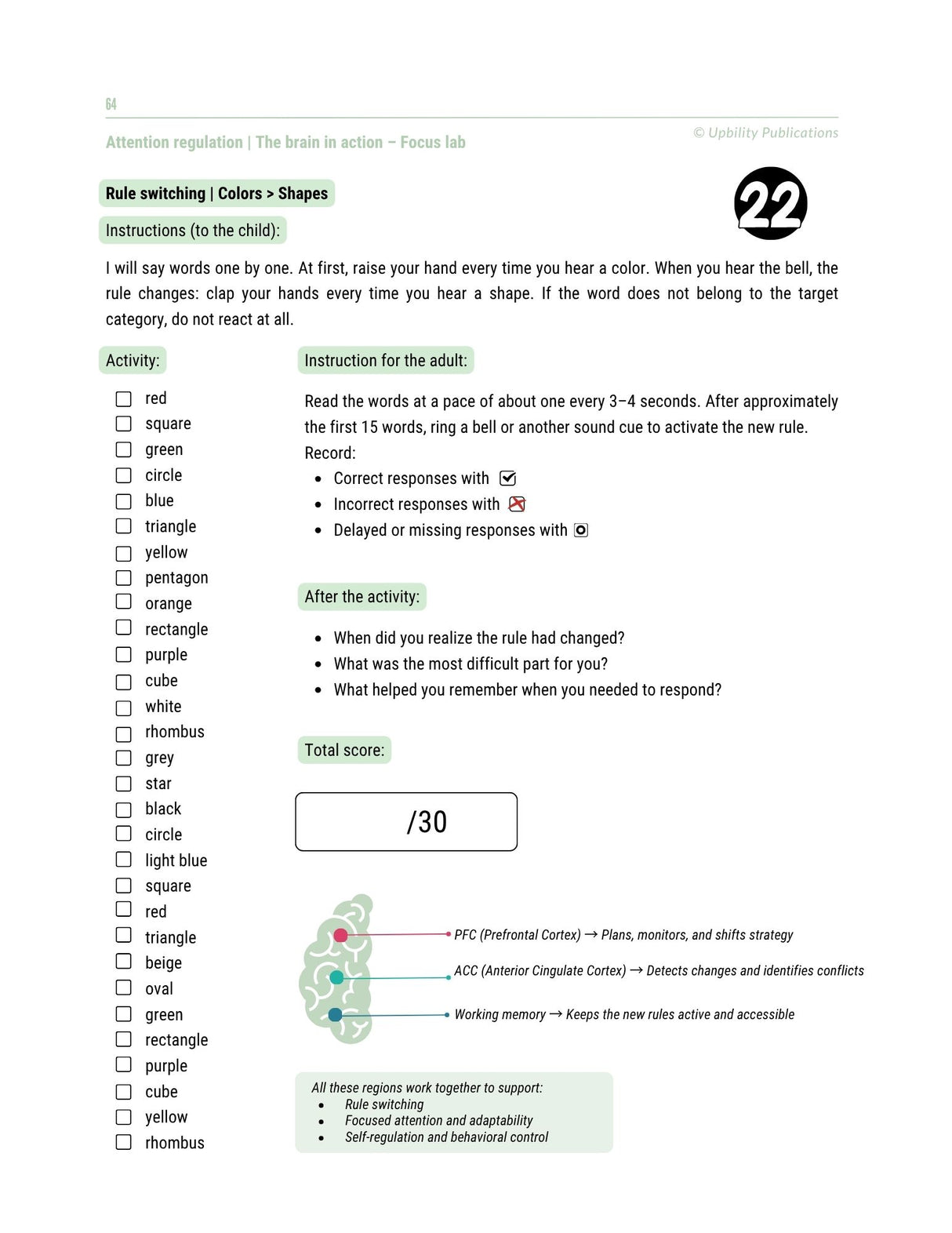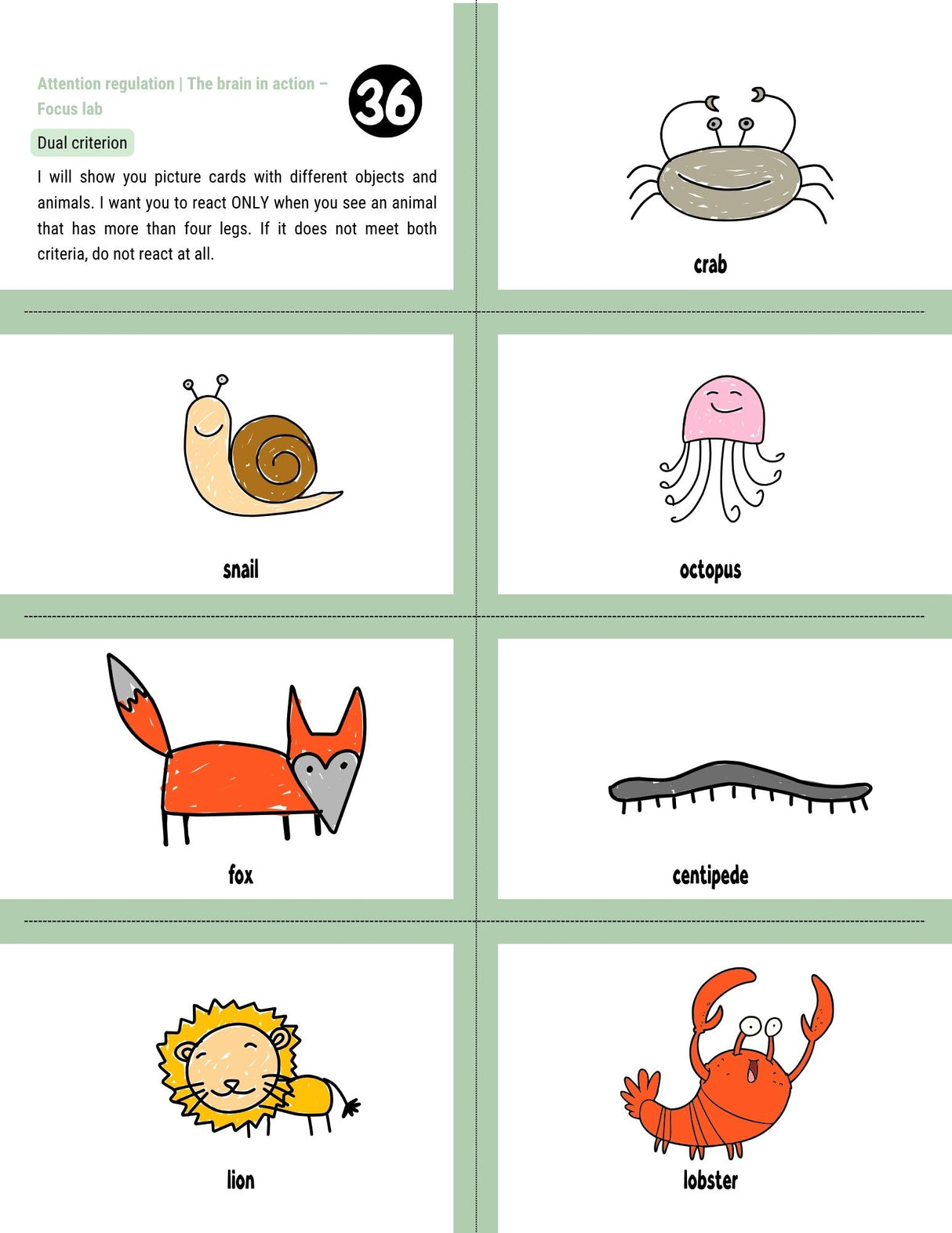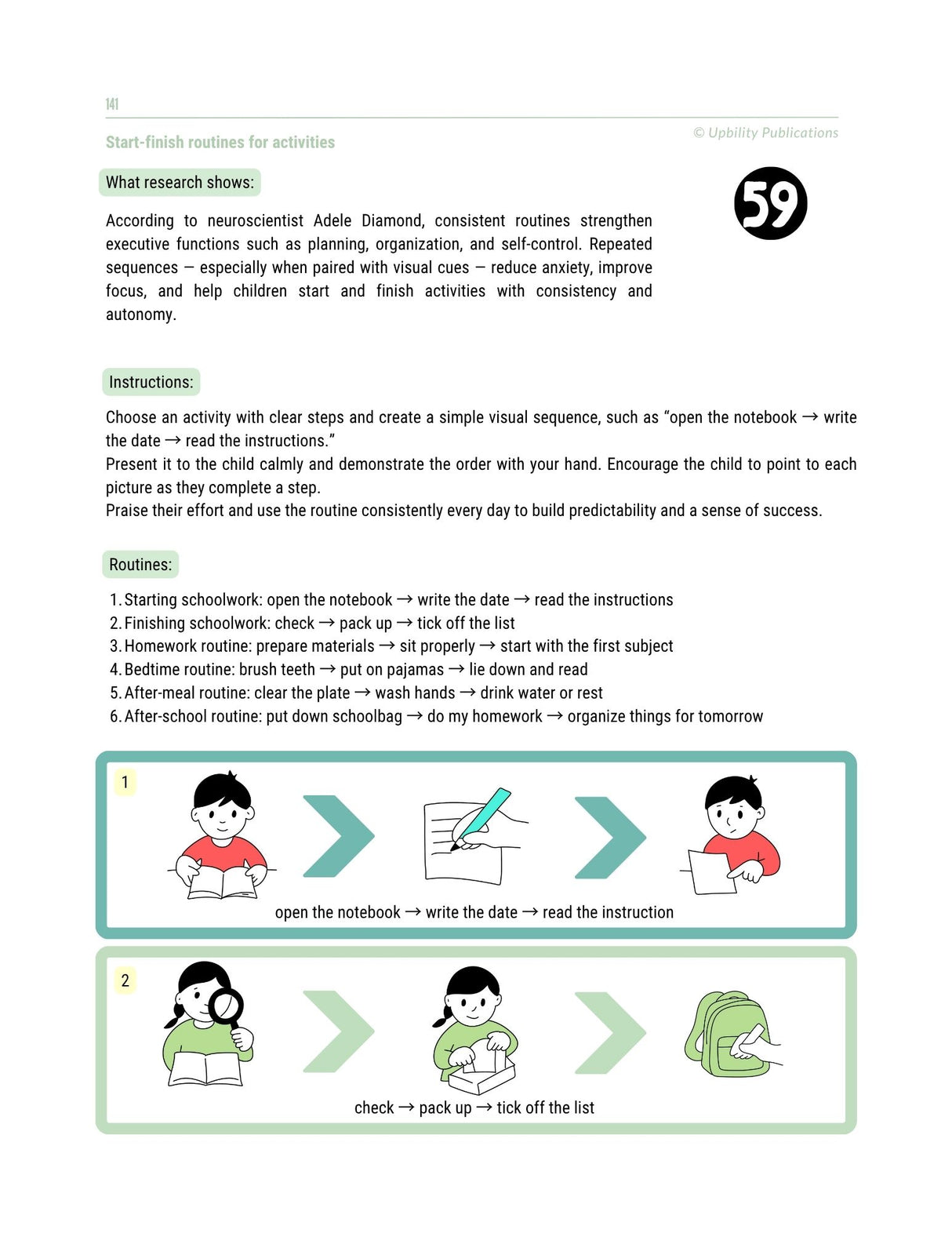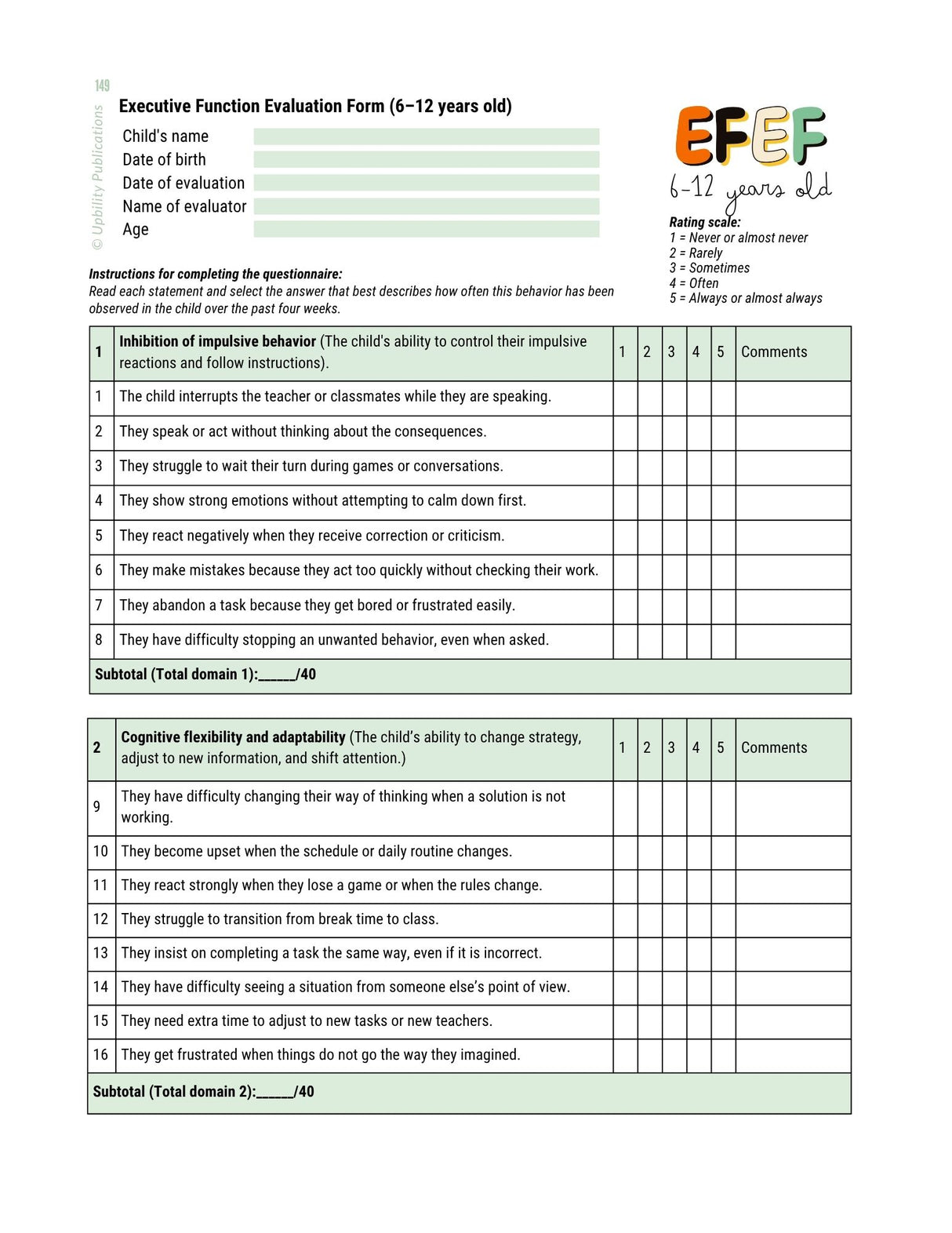Executive Functions - Intervention Strategies | 6-12 years old
Available
Executive Functions - Intervention Strategies | 6-12 years old - is backordered and will ship as soon as it is back in stock.
Description
Description
Age Group: 6+
A complete educational and therapy-ready tool designed to support the development of essential executive functions that form the foundation for learning, behavior, and social adjustment in children. It’s intended for teachers, psychologists, occupational therapists, speech-language therapists, and special educators, offering scientifically grounded and practically applicable material for school-age children.
The content of the book is structured into five thematic units, each dedicated to a critical component of executive functions:
- Inhibitory control: Includes activities that help children manage impulsive reactions, cultivate self-control, and develop mindful decision-making.
- Working memory: Offers games and exercises that strengthen information retention and processing, problem-solving, and the understanding of complex concepts.
- Cognitive flexibility: Focuses on the ability to change strategy and adapt to new situations, fostering creative thinking and resourcefulness.
- Self-regulation: Includes methods that support emotion management, concentration, and goal-directed persistence through activities centered on awareness and emotional stability.
- Planning and organization: Provides practical exercises that help children organize time, tasks, and goals through creative activities with clear steps.
Each activity includes clear application instructions, suggested variations, and worksheets ready to print and use in individual or group settings.
The guide combines theory with practice, enabling professionals to design individualized intervention programs or integrate the exercises into the school routine to improve concentration, organization, emotional regulation, and adaptability.
Combining a scientific base with a practical orientation, “Executive Functions – Intervention Guide | 6–12 years” is an essential tool for every professional who aims to strengthen children’s cognitive and emotional development, contributing significantly to their success in the school and social environment.
Specifications
Specifications
-
Book format
-
Age
-
Number of pages
-
Dimensions
-
Author
-
Pagination
-
Year of publication
Contents
Contents
Author
Author
Age
School-aged children
Author
Alice Kassotaki - Speech Language Pathologist MSc, BSc
Secure Payments
All major methods accepted — fully protected from checkout to delivery.

